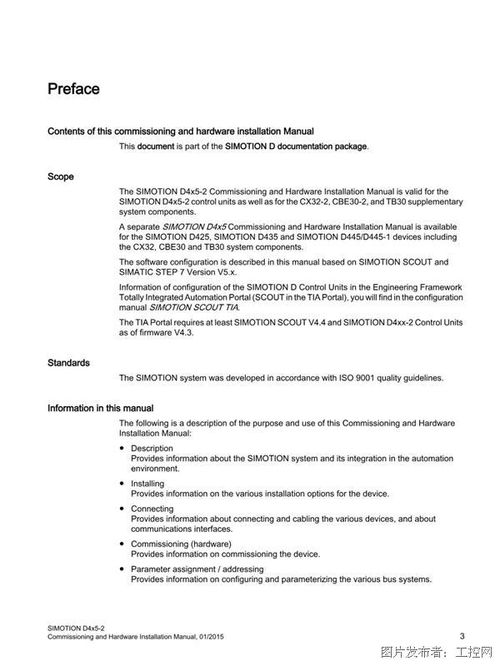Addressing the Safety Concerns in Textile Company Dormitory Environments
: Addressing Safety Concerns in Textile Company Dormitory Environments,Abstract:,In recent years, the safety concerns in textile company dormitory environments have become increasingly prominent. This paper aims to explore effective measures to address these issues, including the implementation of strict fire safety regulations, regular inspections and maintenance of electrical equipment, and the establishment of emergency response plans. The paper also emphasizes the importance of raising workers' awareness of safety through training programs and promoting a culture of safety. By implementing these measures, we can ensure the safety of employees and their families, as well as the stability of the workplace.
Introduction: The safety of employees is paramount for any organization, especially when it comes to dormitory environments. In the textile industry, which often involves hazardous chemicals and machinery, ensuring that the living quarters are safe is crucial to maintaining a healthy and productive work environment. This article aims to explore some of the common safety concerns in textile company dormitories and provide practical solutions to address them.
Common Safety Concerns in Textile Company Dormitories:
-
Electrical Hazards: Textile factories often have high-voltage electrical systems, which can pose a significant risk if not properly managed. Common issues include faulty wiring, overloaded circuits, and improper use of electrical appliances.
-
Chemical Risks: Textile plants often involve exposure to various chemicals, such as dyes, solvents, and pesticides. These substances can cause respiratory problems, skin irritation, or even more serious health issues.

-
Fire Safety: The presence of machinery and electronic equipment in dormitories can increase the risk of fire outbreaks. Poor maintenance and lack of proper emergency response plans can exacerbate this risk.
-
Lockout and Keyless Access: Dormitory doors may be left unlocked, leading to potential break-ins or accidents. Additionally, the absence of lockout procedures can result in unauthorized access to sensitive areas like storage rooms.
-
Hygiene Issues: Dormitory hygiene can be compromised by poor sanitation practices, such as dirty floors and shared bathrooms. This can lead to health risks and increased spread of diseases.
Practical Solutions: To address these safety concerns, companies should implement comprehensive safety protocols and training programs. Here are some practical solutions:
-
Electrical Safety: Regular inspections and maintenance of electrical systems are essential. Companies should ensure that all electrical appliances are in good working condition and use appropriate cord management to prevent tripping hazards. Proper training for employees on electrical safety is also critical.
-
Chemical Risk Management: Implementing strict chemical handling procedures and providing regular training to employees on the proper use of chemicals is vital. Ensure that all chemicals are stored safely and labeled according to their hazard levels.
-
Fire Safety: Establishing a comprehensive fire safety plan and conducting regular drills are essential. Install smoke detectors, fire extinguishers, and other fire-fighting equipment in every dormitory. Regularly inspect these equipment to ensure they are functioning properly.

-
Lockout and Keyless Access: Implement a lockout system where only authorized personnel can enter the dormitory. Provide keycards or biometric access control systems to further enhance security.
-
Hygiene Practices: Implement a comprehensive cleaning schedule and enforce strict hygiene protocols. Use disinfectants regularly to reduce the risk of infection. Provide handwashing stations and encourage frequent hand washing with soap and water.
Case Study: A textile company in China experienced a major safety incident due to an improperly maintained electrical system. A group of students was electrocuted while using a power tool in a shared area of the dormitory. The company quickly implemented measures, including replacing the faulty wiring and conducting a thorough safety audit. They also provided training to all employees on electrical safety and established strict protocols for future incidents. As a result, the company has seen a significant reduction in accidents and improved overall safety culture.
Conclusion: Addressing safety concerns in textile company dormitories requires a proactive approach that involves regular inspections, maintenance, and training. By implementing effective safety protocols and promoting a culture of safety, companies can create a safer living environment for their employees, reducing the risk of accidents and improving productivity.
随着社会发展和人们生活水平的提高,越来越多的公司为员工提供宿舍,宿舍安全问题一直是大家关注的焦点,特别是在纺织品公司这样的行业背景下,宿舍的安全性更是关系到员工的生命财产安全,本文将围绕纺织品公司宿舍的安全性问题展开讨论。
宿舍安全性问题的现状

- 缺乏安全管理制度:许多纺织品公司的宿舍没有健全的安全管理制度,导致员工在住宿过程中存在安全隐患。
- 设施陈旧:部分宿舍的设施老化,存在安全隐患,消防设施不足、电路老化等。
- 安全意识不足:部分员工对宿舍安全问题的重视程度不够,缺乏基本的防范意识。
案例分析
以某纺织品公司为例,该公司宿舍存在以下安全隐患:
- 消防设施不足 该公司在某宿舍楼的一楼设有小型仓库,存放了一些易燃物品,由于缺乏有效的消防措施,一旦发生火灾,后果将不堪设想。
- 电路老化 该公司在某宿舍楼的一间房间内发现电路老化严重,存在漏电和短路的风险,这不仅威胁到员工的生命安全,还可能影响到整个宿舍楼的其他住户。
问题原因分析
- 安全管理制度不完善:部分公司对宿舍安全管理的重视程度不够,没有建立健全的安全管理制度。
- 员工安全意识薄弱:部分员工缺乏基本的防范意识,对宿舍安全问题不够重视。
- 管理不到位:部分公司对宿舍的管理存在漏洞,没有及时进行安全隐患排查和整改。
解决方案与建议
针对纺织品公司宿舍安全性问题,我们提出以下解决方案与建议:
- 加强安全管理制度建设:公司应建立健全的安全管理制度,明确宿舍安全管理的责任和义务,加强对员工的宣传教育,提高员工的安全意识。
- 更新改造设施:公司应加强对宿舍设施的更新改造,确保设施的安全性和可靠性,对于老旧设施,应及时进行维修和更换。
- 加强日常安全管理:公司应加强对宿舍的日常安全管理,定期进行安全隐患排查和整改,加强与当地消防部门的联系,确保在发生火灾等紧急情况时能够及时响应。
- 提高员工培训力度:公司应加强对员工的培训和教育,提高员工的安全意识和防范能力,建立完善的应急预案,确保在发生突发事件时能够迅速应对。
纺织品公司宿舍的安全性问题是关系到员工生命财产安全的重要问题,为了保障员工的生命财产安全,公司应加强安全管理,建立健全的安全管理制度,加强对员工的宣传教育,提高员工的安全意识和防范能力,公司还应加强与当地消防部门的联系,确保在发生紧急情况时能够及时响应,才能确保纺织品公司宿舍的安全性和可靠性。
Articles related to the knowledge points of this article:
The Journey of Hong Kong Textile Excellence The Story of a Textile Brand
The Uniqueness of Textiles from Hunan Province
The Navigating Challenges of Applying for Jobs at Hangzhou Jiexi Ju Textiles
Navigating the Unpredictable:Strategies for Enhancing Textile Durability



